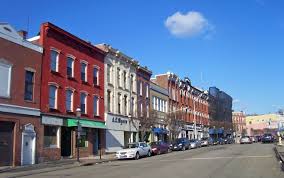We can get you offers in 24 hours
and the money you need in a week!
Applying for a commercial loan is entirely different than the process involved in a residential mortgage. Commercial loans, unlike the vast majority of residential mortgages, are not ultimately backed by a governmental entity such as Fannie Mae. Consequently, most commercial lenders are risk-averse; they charge higher interests rate than on a comparable home loan. Some lenders go a step further, scrutinizing the borrower’s business as well as the commercial property that will serve as collateral for the loan. This means that the business borrower should have different expectations when applying for a loan against his commercial property than he would have for a loan secured by his or her primary residence.
Following is a list of questions the borrower should ask himself and the lender before applying for a commercial loan.


1. How am I going to meet the
loan repayment terms?
Typically, bank loans require the borrower to repay his or her entire business loan much earlier than its stated due date. Banks do this by requiring most of their loans to include a balloon repayment. This means the borrower will pay interest and principal on his 30-year mortgage at the stated interest rate for the first few years (generally 3, 5 or 10 years) and then repay the entire balance in one balloon payment.
We offer less stringent credit requirements for commercial loans. I can find non-bank lenders that will make long-term commercial loans without requiring the early balloon repayment. These loans, which may carry a slightly higher interest rate, work like a typical home loan. They allow a steady repayment over twenty or thirty years. It is often worth paying a one- or two-point higher interest rate for a fixed-term loan in order to ensure the security of a long-term loan commitment.

2. How much
Should I borrow?
Most bank loans prohibit second mortgages, so the borrower should go into the loan process intending to borrow enough to meet current business needs, or enough to sufficiently leverage real estate investments. For a traditional acquisition loan in which the borrower is buying a new property, banks usually require a down payment of 20-25%. So for a $600,000 acquisition, the borrower will need to come up with $120,000-$150,000 for the down payment.
I work with non-traditional lenders that will allow the borrower to make a smaller down payment, maximizing the loan-to-value (LTV) at 85-90%. Such loans are generally not bank loans, but are offered by direct commercial lenders or pools of commercial investors. If the customer wants to borrow the maximum amount possible, the interest rate on such loans may be a point or two higher than typical bank loans. Before deciding how much to borrow, potential borrowers should:
- Evaluate how much cash they are likely to need
- Analyze their ability to repay the loan as it is structured
Research has consistently shown that the number one reason behind the failures of most small businesses is the lack of adequate capital to meet cash-flow needs. Because of this it may actually be safer for a small business to leave a larger cushion against unforeseen events by borrowing more money at the slightly higher rate. The amount of the loan requested has an effect on which commercial lenders will fund the loan. Small businesses borrowing less than $2,000,000 will visit a different pool of potential lenders than those seeking loans of over $5 million.

3. How long will it take
to get a Commercial Mortgage?
Borrowers generally start the loan process by contacting their bank. Unfortunately, it is difficult to secure business loans from most banks. In addition, bank loans:
- Contain the most stringent requirements
- Impose the most loan covenants
- Take the longest time to secure the loan

4. What if
I want to sell the property?
If your business booms, you may want to repay the loan early or sell the property and move to a larger space. Commercial mortgages, unlike residential loans, usually have pre-payment penalties. However, some lenders will allow the purchaser of the property to assume the mortgage by taking over the seller’s payments. An assumable loan is an excellent selling point, because it provides built-in financing for the buyer.

5. What are
the total costs of the loan?
Unlike typical residential mortgages, there can be other charges, which can be considerable. Other costs may include:
- Legal fees,
- Survey charges,
- loan application fees,
- Appraisal charges
- Every item that will be charged against your loan or that must be pre-paid.
- Other questions to ask
- Will my interest rate go up if U.S. interest rates go up in general?
- Is a fixed-rate alternative available?
- Can I get a discount for paying your mortgage faithfully and consistently over a period of time?
Mortgage Calculator

